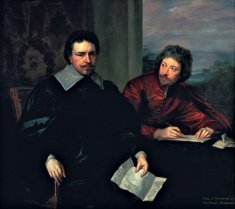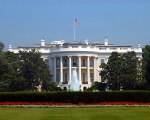It is with considerable sadness for our present state and considerable hope for the future that I am writing this blog entry.
I cried when I heard Barack Obama say, five days before the 2008 election, “We are five days away from fundamentally transforming the United States of America.” (October 30, 2008) I cried because I knew that he was right and that the bright American future that I knew, loved, and took for granted was in serious jeopardy.
Over the next few years, I watched as the left began to fundamentally transform our country. I “hoped” for change in the 2012 election, but I was disappointed. My head was spinning with ideas for several days. I was wondering what I could do as an individual citizen to influence or effect what would happen over the next 4 or more years in our country.
I thought that maybe there were a lot of people in our country who did not know much about the US Constitution and the original intent of the Founders. Maybe this lack of knowledge led them to vote the way that they did. They did not see what was good about the current government system and were looking for change. So, I decided to write, “Reclaiming the Shining City” and provide information about the Constitution – what it meant to the individual citizen and what rights and protection it gives us.
As the years have gone by, it has become more and more difficult to write about the Constitution. The current Administration sees the document as outdated and/or living and the Rule of Law as inconvenient. It has found ways to bypass the Document and original intent by using the courts to legislate from the bench and extra-constitutional appointments of department heads and czars, who have proceeded to re-write law under the guise of administrative law.
The Judges in the courts were never meant to legislate from the bench, and administrative law was never meant to replace the original document (the US Constitution). It was meant, instead, to support and supplement it.
In trying to explain the individual clauses of the Constitution, I found myself more and more having to say, “This is what was meant by the Founders, however, this is how it is interpreted today”. With each court decision and each czar appointment, this became more and more difficult.
The country is currently divided just about down the middle between liberal and conservative. The changes created by this Administration have truly “fundamentally transformed” this country as this President predicted.
Someone said at the beginning of this onslaught that within 5-6 years, we would not recognize our own country. This has become a fact. The “reforms” have been overwhelming: banking, finance, health care, civil rights, abortion rights, the definition of marriage, etc.
Most recently, “executive agreements” with foreign powers are an example of bypassing the Constitution. The agreement with Iran is an example of this. Instead of calling it a treaty, they call it an executive agreement. This will tie the hands of the Senate and make it virtually impossible for the Senators to take a stand in support of what “we the people” want. Article II, Section 2, Clause 2 “The President… shall have Power, by and with the Advice and Consent of the Senate, to make Treaties, provided two thirds of the Senators present concur….”
For more information about treaties, please see http://www.heritage.org/constitution/#!/articles/2/essays/90/treaty-clause.
So, my conclusion, at this point, is to discontinue writing about the Constitution because it is so painful to do so and impossible to correlate with current government. Instead, I will write about occurrences within government and hopefully, from time to time point out a positive change that may occur within the Administration or the Congress. I will also continue to perform my responsibilities as a citizen including voting, serving on the Republican Committee, and contacting my Representative or Senators as warranted.
A word of warning to conservative Christian Americans: We tend to think that we will remain safe and sound because we are a nation chosen and in covenant with God. God has been very gracious and merciful to us as a nation. However, it is not true that the US has a covenant with God, as does Israel. God chose Israel as the chosen nation. He initiated the covenant with Abraham. At best, men in America initiated a covenant with God.
In reality:
“In one respect, there was a covenant, but it wasn’t one between America and God—it was between the church in America and God. The real covenant is with all born-again believers in Jesus Christ throughout the world as they partake of the covenant with God that started with Abraham and eventually included the church, which has been grafted into the tree that is Israel. The covenant with God now is not with governments but rather with individuals who have become partakers of this covenant through faith in Jesus Christ.”
Source:
http://www.lighthousetrailsresearch.com/blog/?p=9653
This truly makes me aware of the importance of my individual walk with the Father and my prayer and believing for my nation. I urge that we each take a stand, praying and believing God for the best for our Country.
For further writing on the meaning of the US Constitution, please visit: http://www.heritage.org/constitution/#!/
























